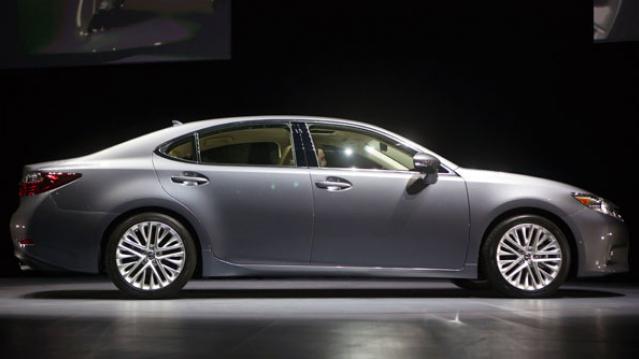Americans Are Happier with This Car Brand Than Any Other

Americans may love their cars, but these days they love them a little less.
Consumer satisfaction with their cars has fallen for the third consecutive year, reflecting unhappiness with increasing recalls and rising prices, according to new data from the American Customer Satisfaction Index.
Car reliability has improved overall in the past decade but the number of recalls is at an all-time high. “This should not happen with modern manufacturing technology and has negative consequences for driver safety, costs, and customer satisfaction,” ACSI Chairman and founder Claes Fornell said in a statement.
Car owners in the second quarter of 2015 reported a 40 percent increase in recalls year over year. The most high profile recalls involve Takata airbags, affecting more than 17 million older-model vehicles built by 11 different auto makers.
Related: Senators Urge Recall of All Vehicles with Takata Airbags
Looking at individual brands, the index shows that Americans prefer Japanese and luxury brand cars, with Lexus displacing Mercedes Benz as the brand with the highest overall satisfaction (84 out of 100). Mercedes tied for second place with Acura and Lincoln.
The average for all autos fell 3.7 points to 79. The only American automaker to rank above average was Ford with a score of 81. General Motors and Chrysler saw their scores fall modestly to 79 and 75 respectively.
Despite a growing decline in satisfaction, Americans are holding onto their vehicles longer than ever. The average age of cars and light trucks is now 11.5 years old, according to a report issued last month by IHS Automotive.
Top Reads from the Fiscal Times:
- Big Surprise: Hispanic Voters Can’t Stand Donald Trump
- How a Biden-Warren Ticket Could Transform the Campaign
- Air Force Brushes Off $27 Billion Accounting Error
Deficit Hits $738.6 Billion in First 8 Months of Fiscal Year

The U.S. budget deficit grew to $738.6 billion in the first eight months of the current fiscal year – an increase of $206 billion, or 38.8%, over the deficit recorded during the same period a year earlier. Bloomberg’s Sarah McGregor notes that the big increase occurred despite a jump in tariff revenues, which have nearly doubled to $44.9 billion so far this fiscal year. But that increase, which contributed to an overall increase in revenues of 2.3%, was not enough to make up for the reduced revenues from the Republican tax cuts and a 9.3% increase in government spending.
Tweet of the Day: Revenues or Spending?

Rep. Kevin Brady (R-TX), ranking member of the House Ways and Means Committee and one of the authors of the 2017 Republican tax overhaul, told The Washington Post’s Heather Long Tuesday that the budget deficit is driven by excess spending, not a shortfall in revenues in the wake of the tax cuts. The Wall Street Journal’s Kate Davidson provided some inconvenient facts for Brady’s claim in a tweet, pointing out that government revenues as a share of GDP have fallen significantly since 2015, while spending has remained more or less constant.
Chart of the Day: The Decline in IRS Audits

Reviewing the recent annual report on tax statistics from the IRS, Robert Weinberger of the Tax Policy Center says it “tells a story of shrinking staff, fewer audits, and less customer service.” The agency had 22% fewer personnel in 2018 than it did in 2010, and its enforcement budget has fallen by nearly $1 billion, Weinberger writes. One obvious effect of the budget cuts has been a sharp reduction in the number of audits the agency has performed annually, which you can see in the chart below.
Number of the Day: $102 Million

President Trump’s golf playing has cost taxpayers $102 million in extra travel and security expenses, according to an analysis by the left-leaning HuffPost news site.
“The $102 million total to date spent on Trump’s presidential golfing represents 255 times the annual presidential salary he volunteered not to take. It is more than three times the cost of special counsel Robert Mueller’s investigation that Trump continually complains about. It would fund for six years the Special Olympics program that Trump’s proposed budget had originally cut to save money,” HuffPost’s S.V. Date writes.
Date says the White House did not respond to HuffPost’s requests for comment.
Americans See Tax-Paying as a Duty

The IRS may not be conducting audits like it used to, but according to the agency’s Data Book for 2018, most Americans still believe it’s not acceptable to cheat on your taxes. About 67% of respondents to an IRS opinion survey “completely agree” that it’s a civic duty to pay “a fair share of taxes,” and another 26% “mostly agree,” bringing the total in agreement to over 90%. Accounting Today says that attitude has been pretty consistent over the last decade.



